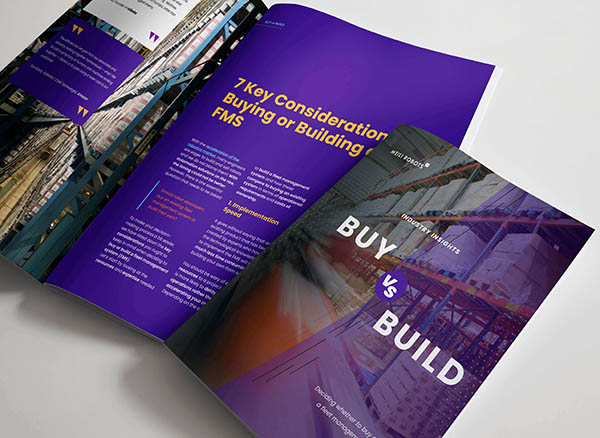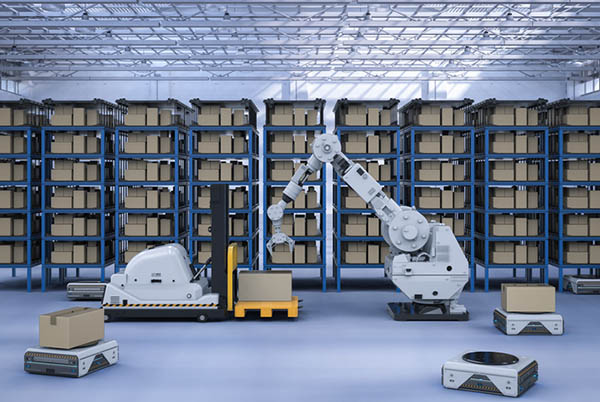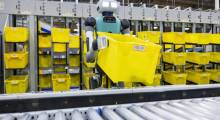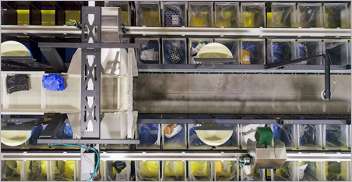From factories to distribution centers, fleets of mobile robots are growing, as is the need to manage them. You might find yourself wondering about buying or building a fleet management system, since controlling everything with a single platform could help optimize operational efficiency and profitability. However, deciding what to do is no easy task.
The global market for autonomous mobile robots (AMRs) will experience a compound annual growth rate (CAGR) of 23.7%, growing from $1.67 billion in 2020 to $8.7 billion in 2028, predicts Fortune Business Insights. In addition, Mobile Industrial Robots ApS reported a 55% increase in sales in the first quarter of 2021.
In its latest “Industry Insights” report, Meili Robots examined seven key considerations for buying or building a fleet management system (FMS) for mobile robots. Let's look at them one by one.
1. Implementation speed
Implementing an existing fleet management system that has been built by third-party experts would be much less time-consuming than building your own from scratch. Not only can it take up to a year or more to build an FMS — depending on the complexity of the project — but it also may delay your overall operations due to potential allocation of resources.
On the other hand, when buying a third-party system from vendors such as Meili Robots, Formant, InOrbit, or Rocos—not to mention some AMR vendors themselves—robotics users could deploy them within hours or days.
2. Implementation costs
Along with implementation speed comes the cost difference between buying and building an FMS. These costs very much depend on your unique requirements and available resources. Take, for example, the size of your mobile robot fleet or whether or not you have in-house experts.
Considering that you need at least six developers to build and maintain an FMS, the average costs of buying an existing system will account for no more than 20% of the average costs for developing your own.
3. Maintenance costs
Maintaining a fleet management sytsem is not only very important, but it can also be very costly. When buying an existing FMS, you automatically get access to third-party experts who are ready to assist whenever you run into problems, need to update the software, or add new features.
If you have built your own FMS, you may struggle to find external help. Unless you have in-house experts that know your system inside out, it is more likely that you will experience difficulties here.
4. Compatibility
One advantage of building your own FMS is that you get to design and build your software exactly the way you want it to integrate into existing systems such as warehouse management software (WMS). However, this does come with the huge responsibility of updating the software on an ongoing basis and adding new features when desired.
On the other hand, a third-party provider can integrate, customize, and update software as needed, and service-level agreements should include expectations. If you have to manage robots from multiple vendors, either you or the service provider will need to monitor interoperability efforts.

5. Functionality
You'll eventually want to add new features and carry out updates for any software. Here, building your own FMS has a clear advantage over buying an existing one. Building and knowing your own strong, stable technological foundation allows you to expand it at any time.
When buying an existing FMS, you will be highly dependent on the vendor in terms of new features and updates, as well as for responding to possible system failures and downtime.
6. Scalability
When building your own FMS, the software must be able to scale along with your business — meaning your development team needs to be expanded and their tasks become even more complex. Most fleet management systems are designed to make it easier to grow your business.
At the same time, the scaling itself will still be in the hands of the FMS provider, so be sure to discuss future scaling possibilities before purchasing.
7. System security
As with most of these considerations, system security depends on the resources you have available. In fact, one current industry challenge is the lack of information regarding which robot can use what type of data.
If you do have access to in-house experts, it may be safer to build your own FMS, as this allows you to control the security of everything within your own organization. If you do not have these resources, consider buying an existing FMS that automatically comes with the assistance of third-party security experts.
Build for the future
Remember that these fleet management considerations very much depend on your organization's unique requirements. Only you know the priorities and tradeoffs among your resource availability, the importance of scalability and how fast you need to deploy the FMS.
On top of that, you also need to consider the importance — and complexity — of stable connectivity and data monitoring when building your own FMS.

About the author
Michelle Schlechtriem is the content manager at Meili Robots. She writes about marketing, technology, and sustainability.
Meili Robots provides a universal fleet management system called Meili FMS. The system is designed to allow robot operators to handle different types and brands of AMRs and AGVs in one system. The fleet management tool can be used for planning, assigning, and executing tasks through key features such as mapping, data logging, and data analytics, said the Copenhagen-based company.
Article topics
Email Sign Up
















